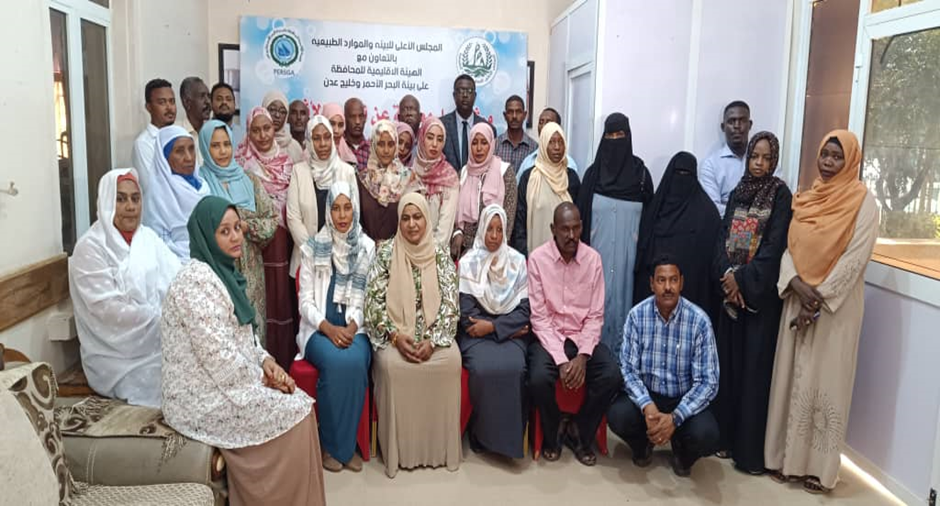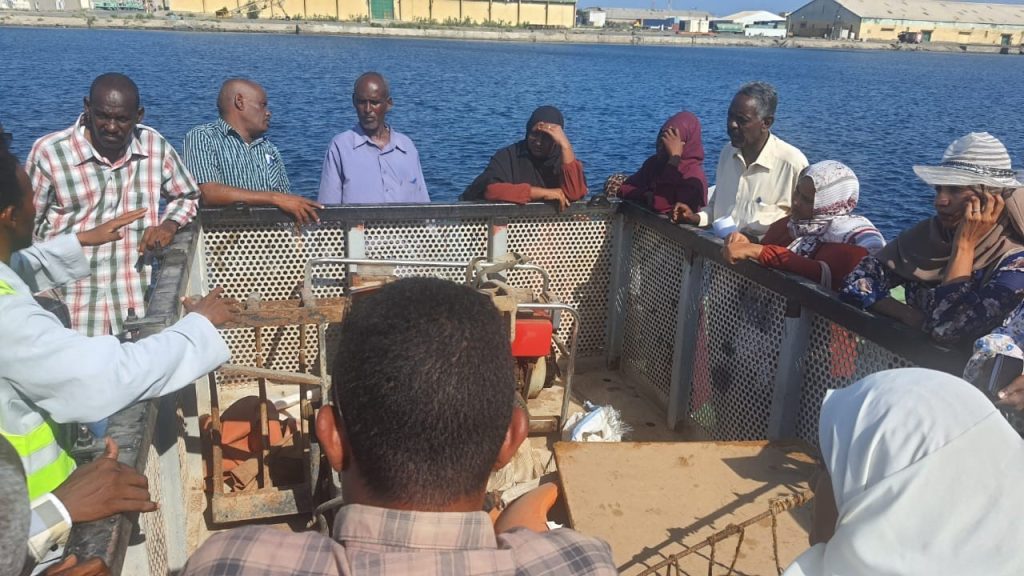A national workshop was held in Port Sudan, Sudan, on October 21-22, 2024, organized by the Regional Organization for the Conservation of the Environment of the Red Sea and Gulf of Aden (PERSGA) in collaboration with the Higher Council for Environment and Natural Resources of Sudan. The workshop aimed to assess the environmental impact of oil pollution incidents on marine resources and to discuss the procedures followed in dealing with such incidents, particularly their effects on fish stocks and the marine environment.
The workshop focused on enhancing the capacity of marine fisheries inspectors by introducing them to proper methods for documenting and surveying oil-polluted areas, as well as familiarizing them with agreements and protocols related to compensation for oil pollution damages. Speakers addressed the major challenges of oil pollution in the Red Sea and emphasized the importance of sustainable management of marine resources, in light of the upcoming implementation of the declaration designating the Red Sea and Gulf of Aden as Special Areas under Annexes I and V of the MARPOL Convention, starting from January 1, 2025.
The workshop included practical training for participants, who were divided into working groups to practice assessing the environmental impact on marine resources and the procedures followed in oil pollution cases. The participants also visited the Marine Control Operations Center to learn about oil pollution control procedures.
The workshop concluded with several key recommendations, including:
- Activating the role of the committee formed by various entities to intervene in oil pollution incidents.
- Allocating fixed budgets through the state budget to deal with oil pollution, including early warning and necessary precautions.
- Strengthening regular monitoring, control, and follow-up.
- Establishing a specialized department for oil pollution intervention.
- Providing logistical resources to address oil pollution risks.
- Updating and enforcing laws and regulations to include oil pollution.
- Enhancing coordination and integration of roles between relevant entities.
- Improving the technical and scientific capabilities of personnel for preparedness in oil pollution incidents.


